Project Funding Breathes New Life into Monitoring Greenland's Seafloor
23.11.2023The Greenland Climate Research Centre and the Greenland Institute of Natural Resources have received funding of DKK 17.2 million for ..
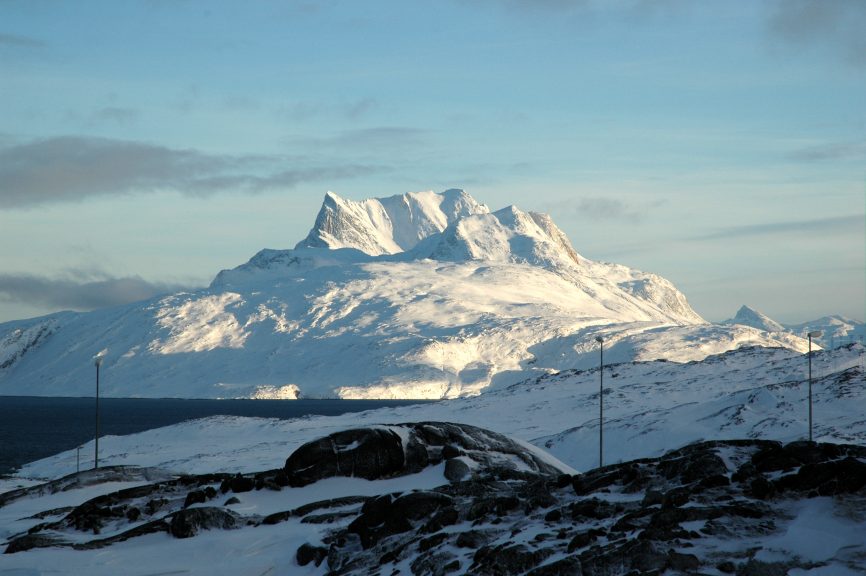
To apply for courses in the Arctic Science Study Programme (ASSP), please complete the “Student Information” form below. After submitting the completed form you will receive an e-mail with details on how to proceed with register for the courses and other practical information.
The ASSP offers graduate (masters) and PhD level courses. The courses in spring form one full semester (30 ECTS). Applicants applying for a full semester are given priority, however, it is possible to apply for single courses. You can find more information about the courses under Arctic Science Study Programme (ASSP).
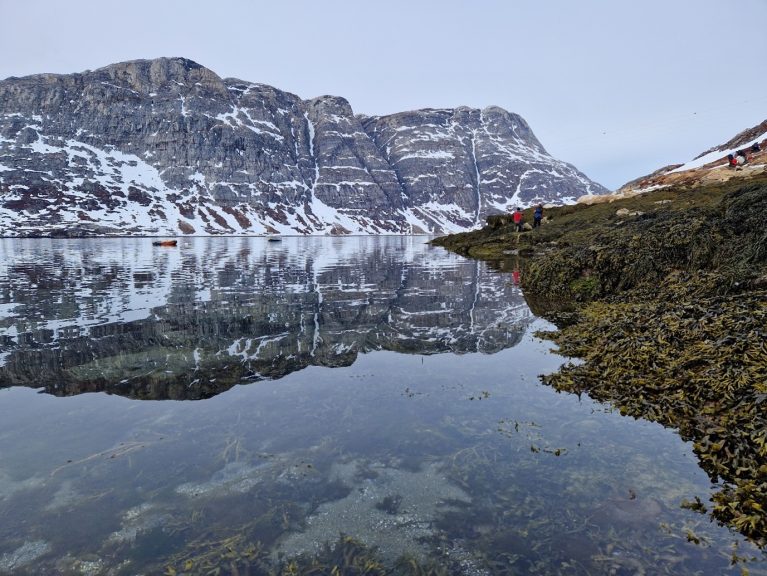
Macroalgae or seaweed are dominating rocky coastlines globally. Even here in Greenland, we can see small kelp such as the bladderwrack (Fucus vesiculosus) or the knotted wrack (Ascophyllum nodosum) every day when the tide retreats. These kelp are incredibly resistant to the harsh conditions in winter. Below the waterline we can find the really big kelp forests mainly consisting of the sieve kelp (Agarum clathratum) or the sugar kelp (Saccharina latissimi) especially in areas protected from iceberg scour – like the harbor in Nuuks kolonie havn.
These algae have many superpowers. For instance, they form a habitat and support a diverse and rich ecosystem along Greenland’s coast. One example of this are the fish, you can see feeding in them. Their other superpower is, however, that they take up CO2 from our atmosphere and use it to grow. Just like plants on land, they are cleaning our air when they get bigger.
Greenland is a special place for these algae because the water here is so clear, yet so rich in nutrients that algae can grow to record depths. At the same time, we expect water in Northern Greenland to become warmer and sea ice to retreat with climate change, allowing these algae to grow in areas, where so far, they couldn’t. This means that these kelp could help to clean up even more of the atmosphere than they currently do.
What remains unclear is where the algae goes when it dies or is removed from its attachment on the rock. Will it be washed up on land? In which case the CO2 it captured will be released back into the atmosphere.
Will it stay in the fjord? Here it could sink and be buried underneath rapidly accumulating sediment, meaning it would make a real difference to climate change.
Or will it be flushed out in the open ocean? Here it might sink to the seafloor and also help mitigate climate change or it could be eaten by different marine animals in which case it is likely that most of the CO2 it captured will be released again.
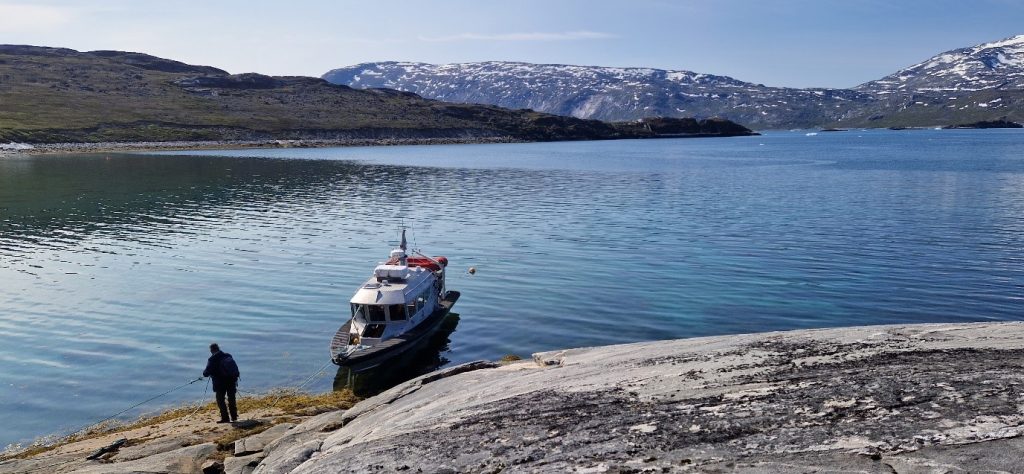
Researchers from the Greenland Climate Research Center, Fiskaaling, the Faroe Marine Research Institute, Tari and Aarhus University recently won the support of the Research Council Faroe Islands for the BlueCea project to investigate exactly those questions along east Greenland and the Faroe Islands.
GCRC scientist and project lead Nadescha Zwerschke explains that they will pair traditional surveys, with videos from remote operated underwater vehicles (ROV), satellite tracking of floating algae, drone imagery and use of genetic markers to trace the fate of the algae from source to sink.
This is a very exciting and timely project to work on questions that are of global interest directly here in Greenland. We are over the moon to have received the support of the Research Council Faroe Island and are very excited for our first field season in East Greenland this August, she says.
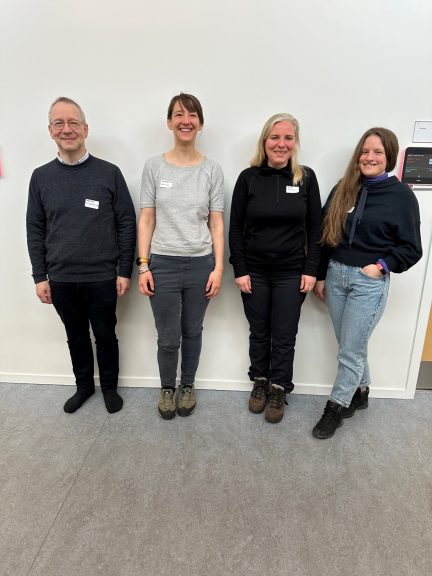
Part of the BlueCea team met in Nuuk for the Research Council Faroe Island workshop in May
Left to right (Petur Steingrund- Faroese Marine Research Institute, Nadescha Zwerschke – GINR, Ása Jacobsen – Fiskaaling and Sissal Vágsheyg Erenbjerg – Fiskaaling)
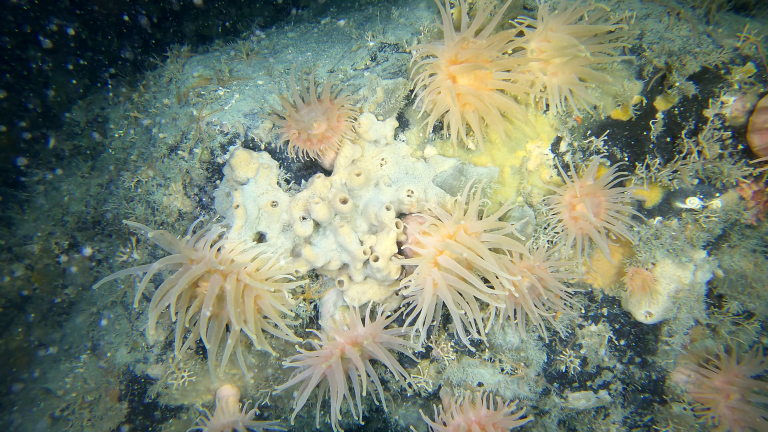
The Greenland Climate Research Centre and the Greenland Institute of Natural Resources have received funding of DKK 17.2 million for ..
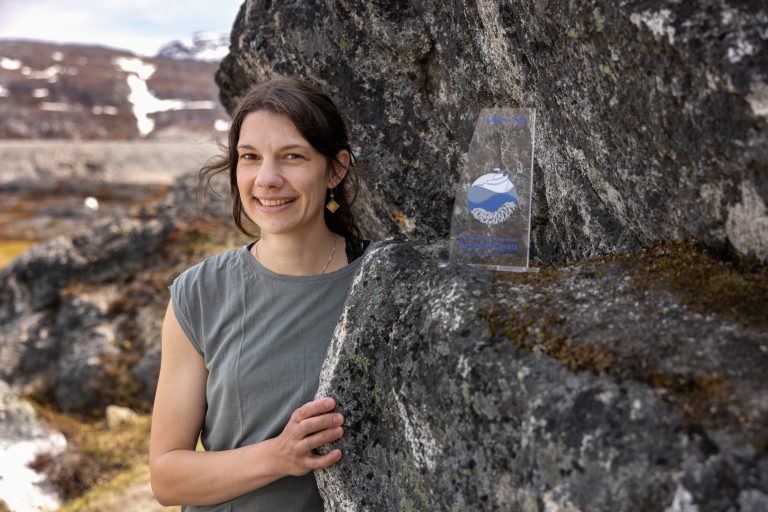
The dark, cold deep sea harbors many unseen treasures, one of which is corals that most people only associate with ..
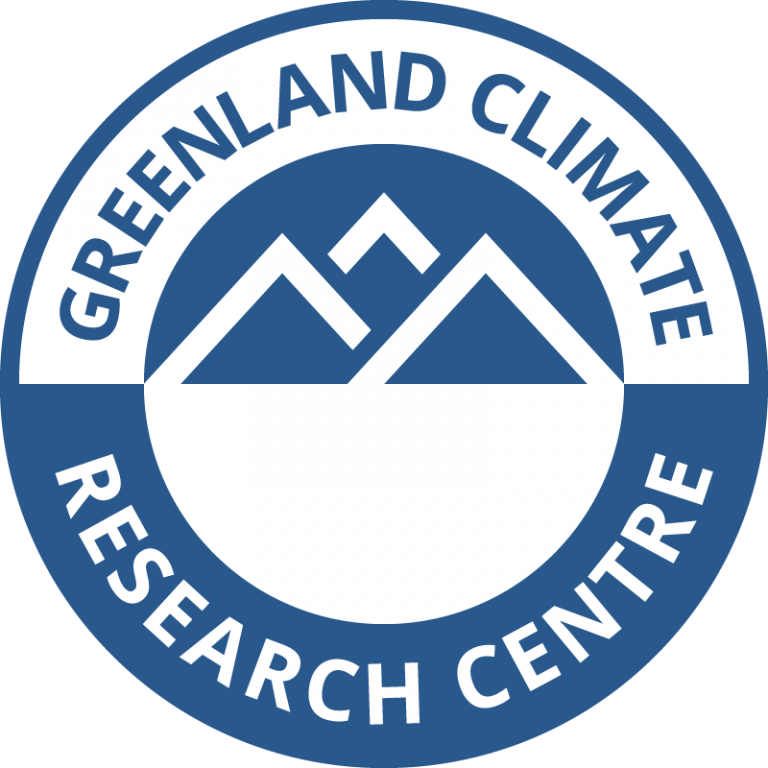
The Greenland Climate Research Centre (GCRC) at the Greenland Institute of Natural Resources invites applicants for a 2-year full time ..